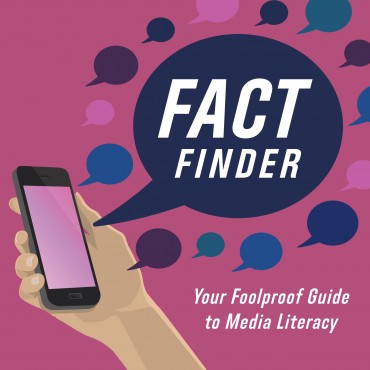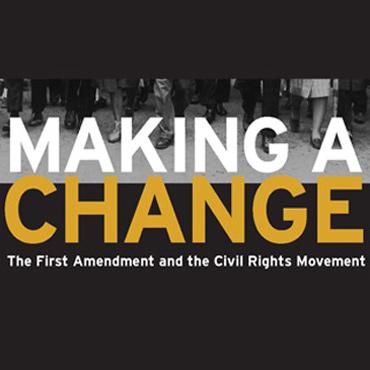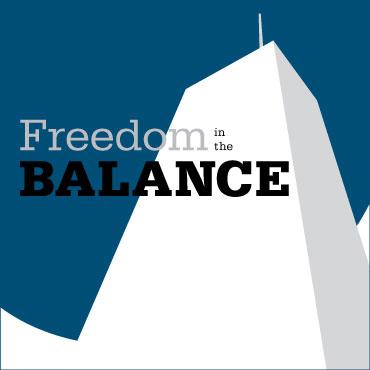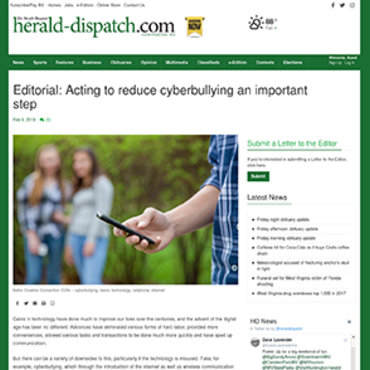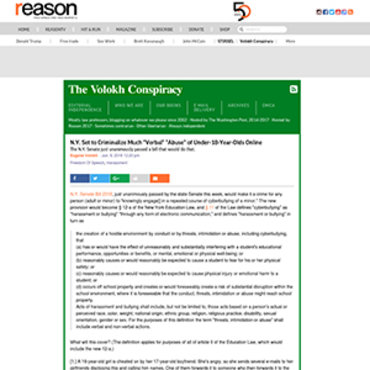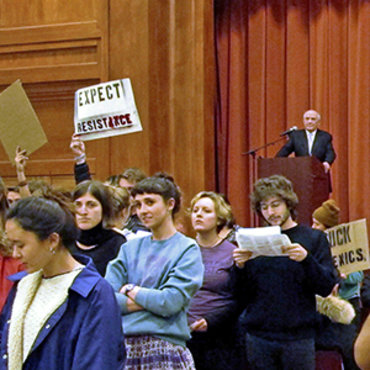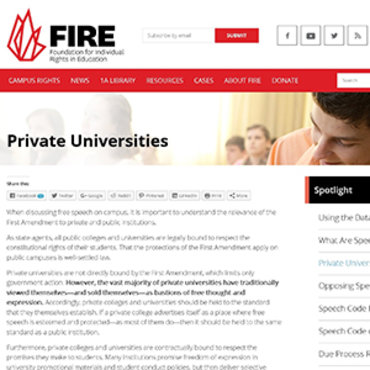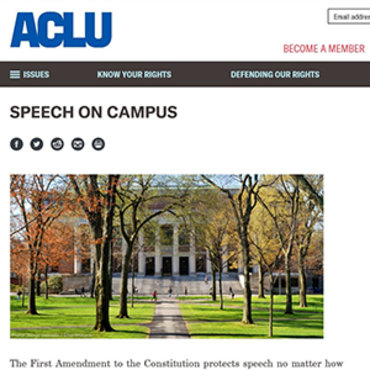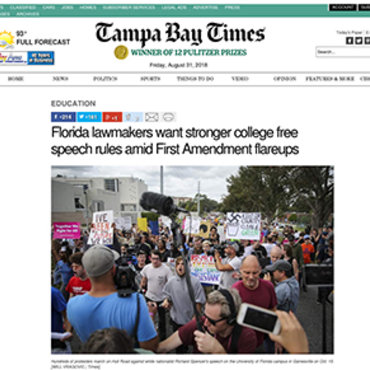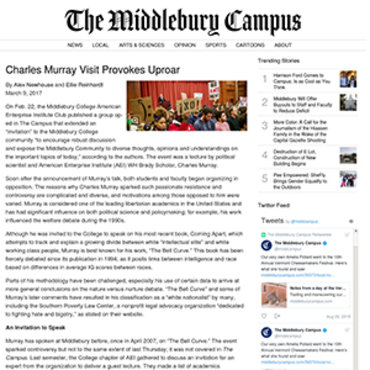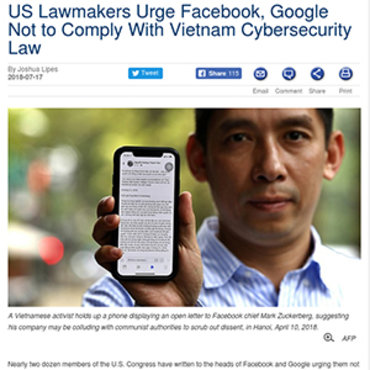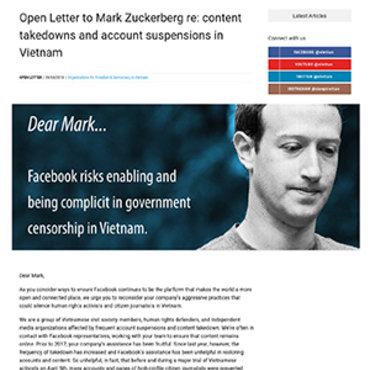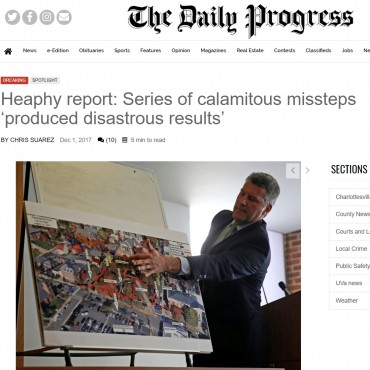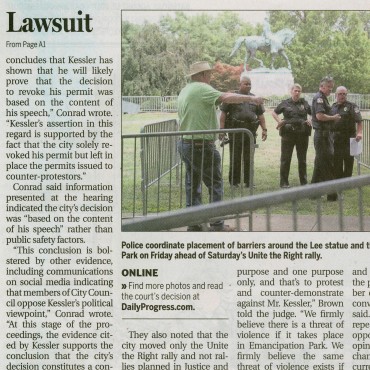2018: Confronting Cyberbullying
Is it possible to protect freedom of speech and limit cyberbullying?
Get even more great free content!
This content contains copyrighted material that requires a free NewseumED account.
Registration is fast, easy, and comes with 100% free access to our vast collection of videos, artifacts, interactive content, and more.
NewseumED is provided as a free educational resource and contains copyrighted material. Registration is required for full access. Signing up is simple and free.
With a free NewseumED account, you can:
- Watch timely and informative videos
- Access expertly crafted lesson plans
- Download an array of classroom resources
- and much more!
This Critical Debate is part of a Debate Comparison:
See all Debate Comparisons- Constitution
- Current Events
- 9-12
- College/University
Do your students know what they’re free to say online? At school? On a public street corner?
From censorship to cyberbullying, the First Amendment and the freedoms it protects are as hotly contested as ever. This case study is part of our EDCollection that explores 16 real free speech debates ranging from the founding of our nation to recent headlines to illustrate what free speech actually means, where it comes from, and how far it can go. It’s information everyone needs to voice their opinions and shape our society.
Using This EDCollection
This EDCollection is designed to meet the needs of a wide range of circumstances and curricula. Whether you’re a social studies teacher looking for a complete unit or an English teacher looking to spend a single class period on free expression, there’s something for everyone. This complete package will lead students to the outcomes below.
Build Fact-Based Arguments
The Free Speech Essentials curriculum aligns with state and national standards as it guides students to take a position, find evidence to support it, and make a compelling presentation to their peers. Potential evidence includes:
- Writings, images and video from 1787 to 2018
- Primary and secondary sources
Connect Past and Present
Six of the eight pairs of case studies in this EDCollection juxtapose real historical and contemporary debates on a key free expression question. These pairs allow students to explore the historical origins of a key question — and get context for tackling today’s hot-button issues. The other two pairs provide different perspectives on a contemporary issue. Topics include:
- Federalism and Facebook
- Presidents and the press
- Censorship and cyberbullying
Keep Calm (and Debate On)
Our case studies are structured to help students experience the passion of the real players, while still practicing productive debate. We provide everything you need to prepare and fully support your students as they engage in civil discourse and debates:
- Overviews of the outcomes
- Clear scenarios and suggested positions
- Suggested discussion prompts.
Today’s social and political landscape can sometimes make free speech and First Amendment controversies seem too explosive for classroom exploration. We’ve created Free Speech Essentials to give you the tools you need to start tackling these vital topics with confidence and create enriching experiences for your students.
— The NewseumED Team
THE CASE
You are a major funder of a nonprofit aimed at improving young people’s mental health. You believe strongly that online harassment and demeaning messages — often known as cyberbullying — are a serious problem among teens.
You have assembled an advisory team to explore the many ways your funding could support anti-cyberbullying initiatives. Your team is composed of educators, mental health experts, media professionals and lawyers.
The educators and mental health professionals think your organization should push for a nationwide law that would make cyberbullying a crime. They argue that teenagers are especially susceptible to mental health issues such as depression and even suicide, and that cyberbullying won’t be taken seriously until there is a federal law against it. They say that protecting the mental health of the country’s youth should be your first priority and that the First Amendment should not be used to protect speech intended to harm others.
The media professionals and lawyers, however, think your money should be spent to teach teens positive online habits and how to remain resilient in the face of abusive online content. They argue that supporting a law to criminalize cyberbullying is a waste of money because the Supreme Court would eventually strike it down as a violation of the First Amendment. The lawyers cite cases where state supreme courts have overturned state laws against cyberbullying for this reason. The media professionals are also concerned about setting precedents that could have a chilling effect on all free speech.
After hearing both arguments, you must decide the best way to spend your time and money.
Should you back a nationwide law against cyberbullying?
-
Yes. A law is needed to send a serious message and block harmful speech.
This issue deserves to be a priority. As long as you carefully define cyberbullying, a national law could shed light on a serious issue and protect young people from harmful online attacks.
-
No. Look at educational solutions, because banning speech is not the answer.
Cyberbullying is a real problem, but a law against it would be hard to enforce and probably violate First Amendment freedoms. Focus instead on enforcing existing laws and teaching teens to confront this behavior and use social media responsibly.
- Should the First Amendment protect cyberbullying?
- How would you define cyberbullying? Where is the line between a mean photo or comment and something that should be considered a criminal act?
- How would you tell the difference between cyberbullying and other forms of online speech? Would you be able to differentiate cyberbullying from a joke? A poem? A piece of fiction?
- Although cyberbullying takes place in the virtual world online, how could it affect a teenager at school or home?
- If some states have laws against cyberbullying, is a national law needed?
- Whose job should it be to regulate online content? Who should decide if content meets the definition of cyberbullying or not?
- What do you think is the best way to address the problem of cyberbullying?










